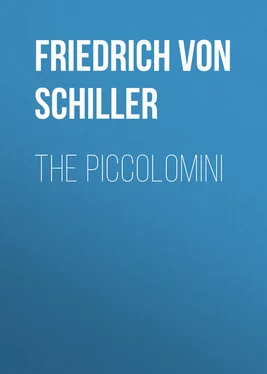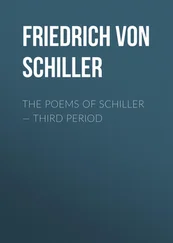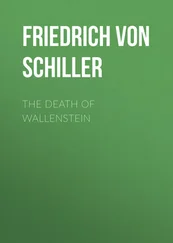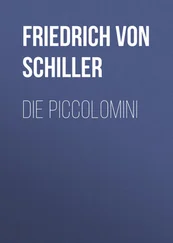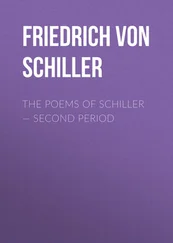Friedrich Schiller - The Piccolomini
Здесь есть возможность читать онлайн «Friedrich Schiller - The Piccolomini» — ознакомительный отрывок электронной книги совершенно бесплатно, а после прочтения отрывка купить полную версию. В некоторых случаях можно слушать аудио, скачать через торрент в формате fb2 и присутствует краткое содержание. Жанр: literature_18, Драматургия, foreign_antique, foreign_prose, foreign_dramaturgy, на английском языке. Описание произведения, (предисловие) а так же отзывы посетителей доступны на портале библиотеки ЛибКат.
- Название:The Piccolomini
- Автор:
- Жанр:
- Год:неизвестен
- ISBN:нет данных
- Рейтинг книги:3 / 5. Голосов: 1
-
Избранное:Добавить в избранное
- Отзывы:
-
Ваша оценка:
- 60
- 1
- 2
- 3
- 4
- 5
The Piccolomini: краткое содержание, описание и аннотация
Предлагаем к чтению аннотацию, описание, краткое содержание или предисловие (зависит от того, что написал сам автор книги «The Piccolomini»). Если вы не нашли необходимую информацию о книге — напишите в комментариях, мы постараемся отыскать её.
The Piccolomini — читать онлайн ознакомительный отрывок
Ниже представлен текст книги, разбитый по страницам. Система сохранения места последней прочитанной страницы, позволяет с удобством читать онлайн бесплатно книгу «The Piccolomini», без необходимости каждый раз заново искать на чём Вы остановились. Поставьте закладку, и сможете в любой момент перейти на страницу, на которой закончили чтение.
Интервал:
Закладка:
Friedrich Schiller
The Piccolomini: A Play
PREFACE
The two dramas, – PICCOLOMINI, or the first part of WALLENSTEIN, and the DEATH OF WALLENSTEIN, are introduced in the original manuscript by a prelude in one act, entitled WALLENSTEIN'S CAMP. This is written in rhyme, and in nine-syllable verse, in the same lilting metre (if that expression may be permitted), with the second Eclogue of Spenser's Shepherd's Calendar.
This prelude possesses a sort of broad humor, and is not deficient in character: but to have translated it into prose, or into any other metre than that of the original, would have given a false idea both of its style and purport; to have translated it into the same metre would have been incompatible with a faithful adherence to the sense of the German from the comparative poverty of our language in rhymes; and it would have been unadvisable, from the incongruity of those lax verses with the present taste of the English public. Schiller's intention seems to have been merely to have prepared his reader for the tragedies by a lively picture of laxity of discipline and the mutinous dispositions of Wallenstein's soldiery. It is not necessary as a preliminary explanation. For these reasons it has been thought expedient not to translate it.
The admirers of Schiller, who have abstracted their idea of that author from the Robbers, and the Cabal and Love, plays in which the main interest is produced by the excitement of curiosity, and in which the curiosity is excited by terrible and extraordinary incident, will not have perused without some portion of disappointment the dramas, which it has been my employment to translate. They should, however, reflect that these are historical dramas taken from a popular German history; that we must, therefore, judge of them in some measure with the feelings of Germans; or, by analogy, with the interest excited in us by similar dramas in our own language. Few, I trust, would be rash or ignorant enough to compare Schiller with Shakspeare; yet, merely as illustration, I would say that we should proceed to the perusal of Wallenstein, not from Lear or Othello, but from Richard II., or the three parts of Henry VI. We scarcely expect rapidity in an historical drama; and many prolix speeches are pardoned from characters whose names and actions have formed the most amusing tales of our early life. On the other hand, there exist in these plays more individual beauties, more passages whose excellence will bear reflection than in the former productions of Schiller. The description of the Astrological Tower, and the reflections of the Young Lover, which follow it, form in the original a fine poem; and my translation must have been wretched indeed if it can have wholly overclouded the beauties of the scene in the first act of the first play between Questenberg, Max, and Octavio Piccolomini. If we except the scene of the setting sun in the Robbers, I know of no part in Schiller's plays which equals the first scene of the fifth act of the concluding plays. [In this edition, scene iii., act v.] It would be unbecoming in me to be more diffuse on this subject. A translator stands connected with the original author by a certain law of subordination which makes it more decorous to point out excellences than defects; indeed, he is not likely to be a fair judge of either. The pleasure or disgust from his own labor will mingle with the feelings that arise from an afterview of the original. Even in the first perusal of a work in any foreign language which we understand, we are apt to attribute to it more excellence than it really possesses from our own pleasurable sense of difficulty overcome without effort. Translation of poetry into poetry is difficult, because the translator must give a brilliancy to his language without that warmth of original conception from which such brilliancy would follow of its own accord. But the translator of a living author is incumbered with additional inconveniences. If he render his original faithfully as to the sense of each passage, he must necessarily destroy a considerable portion of the spirit; if he endeavor to give a work executed according to laws of compensation he subjects himself to imputations of vanity or misrepresentation. I have thought it my duty to remain bound by the sense of my original with as few exceptions as the nature of the languages rendered possible. S. T. C.
DRAMATIS PERSONAE
WALLENSTEIN, Duke of Friedland, Generalissimo of the Imperial Forces in the Thirty Years' War.
OCTAVIO PICCOLOMINI, Lieutenant-General.
MAX. PICCOLOMINI, his Son, Colonel of a Regiment of Cuirassiers.
COUNT TERZKY, the Commander of several Regiments, and Brother-in-law of Wallenstein.
ILLO, Field-Marshal, Wallenstein's Confidant.
ISOLANI, General of the Croats.
BUTLER, an Irishman, Commander of a Regiment of Dragoons.
TIEFENBACH, |
DON MARADAS, | Generals under Wallenstein.
GOETZ, |
KOLATTO, |
NEUMANN, Captain of Cavalry, Aide-de-Camp to Terzky.
VON QUESTENBERG, the War Commissioner, Imperial Envoy.
BAPTISTA SENI, an Astrologer.
DUCHESS OF FRIEDLAND, Wife of Wallenstein.
THEKLA, her Daughter, Princess of Friedland.
THE COUNTESS TERZRY, Sister of the Duchess.
A CORNET.
COLONELS and GENERALS (several).
PAGES and ATTENDANTS belonging to Wallenstein.
ATTENDANTS and HOBOISTS belonging to Terzky.
MASTER OF THE CELLAR to Count Terzky.
VALET DE CHAMBRE of Count Piccolomini.
ACT I
SCENE I
An old Gothic Chamber in the Council-House at Pilsen, decorated with Colors and other War Insignia.
ILLO, with BUTLER and ISOLANI.
Ye have come too late-but ye are come! The distance,
Count Isolani, excuses your delay.
Add this too, that we come not empty-handed.
At Donauwerth 1 1 A town about twelve German miles N.E. of Ulm.
it was reported to us,
A Swedish caravan was on its way,
Transporting a rich cargo of provision,
Almost six hundreds wagons. This my Croats
Plunged down upon and seized, this weighty prize! —
We bring it hither —
Just in time to banquet
The illustrious company assembled here.
'Tis all alive! a stirring scene here!
Ay!
The very churches are full of soldiers.
[Casts his eye round.
And in the council-house, too, I observe,
You're settled quite at home! Well, well! we soldiers
Must shift and suit us in what way we can.
We have the colonels here of thirty regiments.
You'll find Count Terzky here, and Tiefenbach,
Kolatto, Goetz, Maradas, Hinnersam,
The Piccolomini, both son and father —
You'll meet with many an unexpected greeting
From many an old friend and acquaintance. Only
Gallas is wanting still, and Altringer.
Expect not Gallas.
How so? Do you know —
Max. Piccolomini here? O bring me to him.
I see him yet ('tis now ten years ago,
We were engaged with Mansfeldt hard by Dessau),
I see the youth, in my mind's eye I see him,
Leap his black war-horse from the bridge adown,
And t'ward his father, then in extreme peril,
Beat up against the strong tide of the Elbe.
The down was scarce upon his chin! I hear
He has made good the promise of his youth,
And the full hero now is finished in him.
Интервал:
Закладка:
Похожие книги на «The Piccolomini»
Представляем Вашему вниманию похожие книги на «The Piccolomini» списком для выбора. Мы отобрали схожую по названию и смыслу литературу в надежде предоставить читателям больше вариантов отыскать новые, интересные, ещё непрочитанные произведения.
Обсуждение, отзывы о книге «The Piccolomini» и просто собственные мнения читателей. Оставьте ваши комментарии, напишите, что Вы думаете о произведении, его смысле или главных героях. Укажите что конкретно понравилось, а что нет, и почему Вы так считаете.
